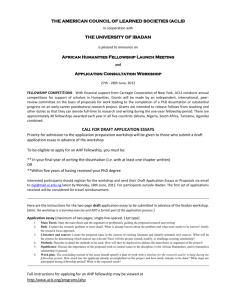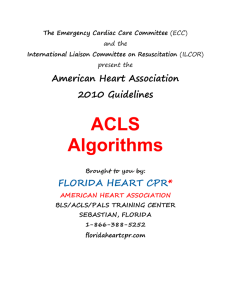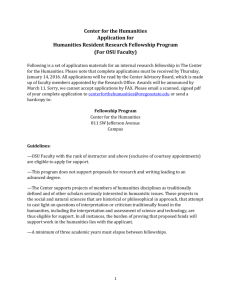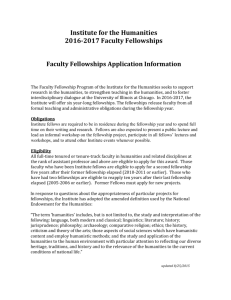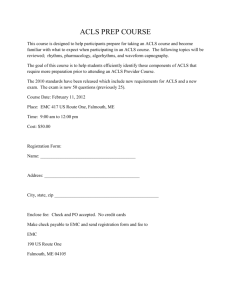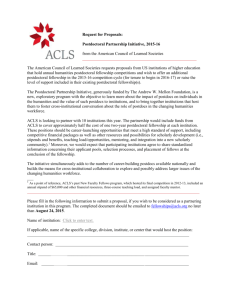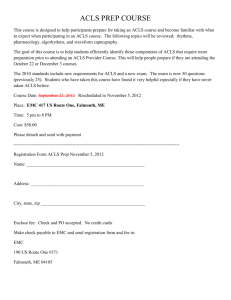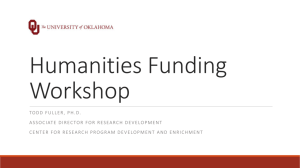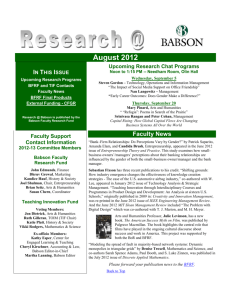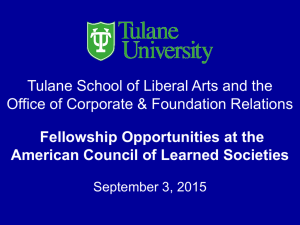Delegate to ACLS
advertisement
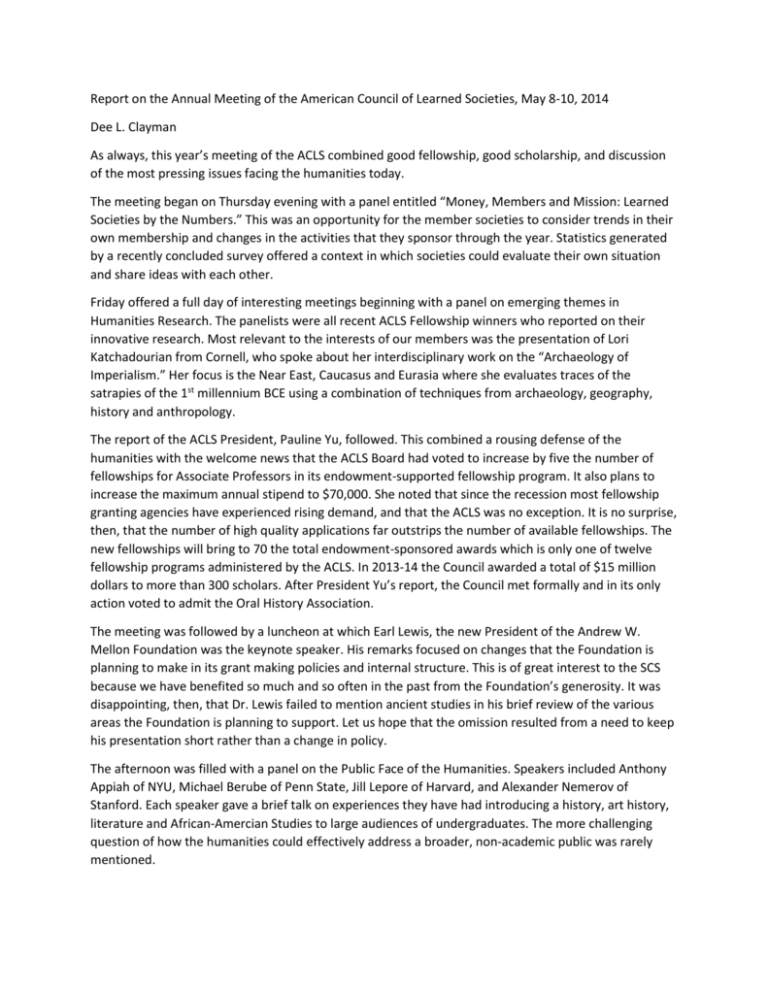
Report on the Annual Meeting of the American Council of Learned Societies, May 8-10, 2014 Dee L. Clayman As always, this year’s meeting of the ACLS combined good fellowship, good scholarship, and discussion of the most pressing issues facing the humanities today. The meeting began on Thursday evening with a panel entitled “Money, Members and Mission: Learned Societies by the Numbers.” This was an opportunity for the member societies to consider trends in their own membership and changes in the activities that they sponsor through the year. Statistics generated by a recently concluded survey offered a context in which societies could evaluate their own situation and share ideas with each other. Friday offered a full day of interesting meetings beginning with a panel on emerging themes in Humanities Research. The panelists were all recent ACLS Fellowship winners who reported on their innovative research. Most relevant to the interests of our members was the presentation of Lori Katchadourian from Cornell, who spoke about her interdisciplinary work on the “Archaeology of Imperialism.” Her focus is the Near East, Caucasus and Eurasia where she evaluates traces of the satrapies of the 1st millennium BCE using a combination of techniques from archaeology, geography, history and anthropology. The report of the ACLS President, Pauline Yu, followed. This combined a rousing defense of the humanities with the welcome news that the ACLS Board had voted to increase by five the number of fellowships for Associate Professors in its endowment-supported fellowship program. It also plans to increase the maximum annual stipend to $70,000. She noted that since the recession most fellowship granting agencies have experienced rising demand, and that the ACLS was no exception. It is no surprise, then, that the number of high quality applications far outstrips the number of available fellowships. The new fellowships will bring to 70 the total endowment-sponsored awards which is only one of twelve fellowship programs administered by the ACLS. In 2013-14 the Council awarded a total of $15 million dollars to more than 300 scholars. After President Yu’s report, the Council met formally and in its only action voted to admit the Oral History Association. The meeting was followed by a luncheon at which Earl Lewis, the new President of the Andrew W. Mellon Foundation was the keynote speaker. His remarks focused on changes that the Foundation is planning to make in its grant making policies and internal structure. This is of great interest to the SCS because we have benefited so much and so often in the past from the Foundation’s generosity. It was disappointing, then, that Dr. Lewis failed to mention ancient studies in his brief review of the various areas the Foundation is planning to support. Let us hope that the omission resulted from a need to keep his presentation short rather than a change in policy. The afternoon was filled with a panel on the Public Face of the Humanities. Speakers included Anthony Appiah of NYU, Michael Berube of Penn State, Jill Lepore of Harvard, and Alexander Nemerov of Stanford. Each speaker gave a brief talk on experiences they have had introducing a history, art history, literature and African-Amercian Studies to large audiences of undergraduates. The more challenging question of how the humanities could effectively address a broader, non-academic public was rarely mentioned. The day ended with the awarding of the Haskins prize to Bruno Netti, a renowned ethnomusicologist at the University of Illinois at Champaign-Urbana. Altogether the meeting was both enjoyable and inspiring.
